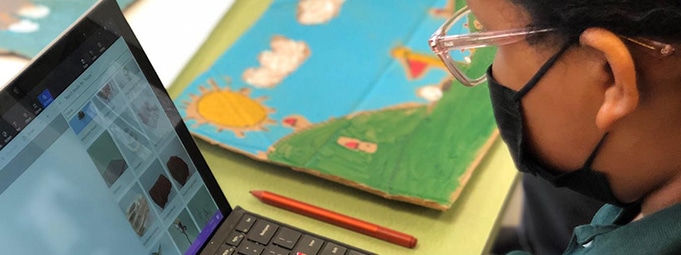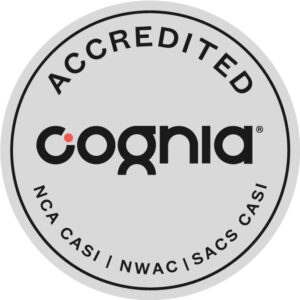
In this technology-driven era, artificial intelligence (AI) has infiltrated our daily lives. However, more often than not, many curriculums are not teaching AI to students across the nation.
Exploring the critical intersection between the humanities and AI will teach students to understand and navigate the world around them. This is one reason why Renton Prep is teaching AI in the classroom, both technologically and emotionally.
Here we are in the middle of 2021 and with the impact of technology on people, education, and politics (especially during the pandemic), it’s becoming easier to consider humanities and AI as something in the present and not theoretical.
A couple of years ago, we presented Shakespeare’s Julius Caesar to our students to prepare them for the live production at the Seattle Shakespeare Company. It was the theatre that enraged and taught our students how quickly people could be swayed. Shouldn’t it be obvious to the crowd that they were being manipulated?
It’s when people are most vulnerable, the most emotional and scared, that it’s the easiest to manipulate their thoughts and actions. Hybrid warfare can combine multiple strategies to first identify the societal narrative, then cause further division.
The parallel of the Theatre of the Absurd and the approaches of digital warfare within society is uncanny. As amazing and useful as technology is, it provides an opportunity for invisible warfare puppeteering unaware citizens.
This type of digital and subversive tactic is designed to get people to fight with one another. It’s already known with some of the AI and bots that exist, to entice people to hate each other and amplify this reaction through social media as an effective way to get internal fighting to ensue.
If we don’t know the power of the technology we are using, and if we don’t understand the implications for user agreements, people may be giving away far more than they realize. This is especially true if we are only considering what we assume as a given for privacy, freedom, and control of data.
There are some amazing things that can happen with remote learning. In addition, there is some incredible good that is advancing the process of education with technology.
However, shifting school to remote learning is not what is bringing students into the future. In some cases, it can lead to social and emotional damage. In addition, it amplifies the inequities already existing in school systems; and we are losing some great minds who are giving up on school.
There is a reason to take COVID-19 seriously. There is also reason to evaluate our responses and vulnerabilities that go beyond physical health. People are counting the physical cost of lives lost during this pandemic due to the virus. It’s too early to count the cost of all the losses. And it may be too difficult to trace the impact on humanity from fear, isolation, job loss, and loss of human connection.
Since I began my research in educational technology, I’ve emphasized the balance in human-computer interaction where technology supports humanity, not replaces it.
I revisited Kafka’s The Metamorphosis with my students, and this year they resonated with the story in a way not felt in previous years. It’s a feeling of futility of human struggle in a senseless world.
I want my students to be more than merely players standing on a stage. Because of that, I go through the discomfort of learning; even if it means changing the way I’ve taught to better prepare them. We want our students to think on their feet. We want them to not be easily swayed, to question, to build empathy and compassion, and look beyond themselves to see the potential consequences for decisions they make now.
And this is where I am today; more convinced that humanities need to be central in the discussion of AI in ethics and education, and society.
This is a call to action for education and the humanities to help find ways to first become aware. And then secondly, use every teaching method to build a stronger democracy so humanities and AI are used for good. To solve challenges so we don’t live out Julius Caesar, amplified by AI.
Integrating AI and humanities into the classroom can seem frustrating when you’re new to the topic. The first step should always be familiarizing yourself with the subject matter so you can accurately teach the content to your students.
Once you’ve done that then the next step is finding ways to make the content engaging for students. You can do this in different methods such as creating assignments where students must use technology to fulfill social or environmental needs.
A recently completed student project is a great example of this. To display comprehension of sustainability while practicing technological abilities, students were put into groups to design a sustainable city using Minecraft. The students were able to incorporate anything into the city so long as it could sustain the populace. This left students the opportunity to critically think about what components make up a successful city and how to creatively demonstrate it on a digital platform.
Our students are living in a digital world. As educators, we have to realize that technology can amplify the experience and education we teach.
From kindergarten, Renton Prep is constantly exploring how we can keep integrating AI and technology in our classrooms. It’s important to realize that that human emotion comes first. After meeting emotional needs, then teachers can blend these values into a technology-driven curriculum.

